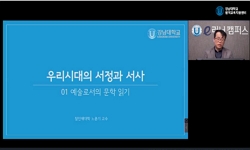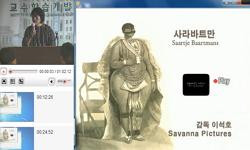As for whether or not historians should make moral judgments in their narrative, there have been two opposite views. One is the view that history is a science which must bear a universality and objectivity, and historian's moral concern and judgments ...
http://chineseinput.net/에서 pinyin(병음)방식으로 중국어를 변환할 수 있습니다.
변환된 중국어를 복사하여 사용하시면 됩니다.
- 中文 을 입력하시려면 zhongwen을 입력하시고 space를누르시면됩니다.
- 北京 을 입력하시려면 beijing을 입력하시고 space를 누르시면 됩니다.
부가정보
다국어 초록 (Multilingual Abstract)
As regards the moral judgments in history, Hume takes a moderate attitude between two contrary views. On the one hand, he lays emphasis on the positivistic description based on facts and claims the necessity of moral judgment in history on the other. However, by saying that "it seems unreasonable to judge of the measures embraced during one period, by the maxims which prevail in another," Hume are faced with the criticism that he stands for ethical relativism. But he is not an ethical but an normative relativist in that he accepts the universal principle of morals on which moral norms or rules depend. According to Hume's view of history that the utility of history lies in reinforcing the virtues, history is none other than 'the easy and obvious philosophy' that he searches for in the Treatise and the Enquires.
As for whether or not historians should make moral judgments in their narrative, there have been two opposite views. One is the view that history is a science which must bear a universality and objectivity, and historian's moral concern and judgments may cause the distortion of history and interfere with the objective understanding of history. The other is that history is not simply a story but an interpreted story, i.e. a meaningful narrative, and the moral judgment passed in views of an idea and purpose of history is inevitable.
As regards the moral judgments in history, Hume takes a moderate attitude between two contrary views. On the one hand, he lays emphasis on the positivistic description based on facts and claims the necessity of moral judgment in history on the other. However, by saying that "it seems unreasonable to judge of the measures embraced during one period, by the maxims which prevail in another," Hume are faced with the criticism that he stands for ethical relativism. But he is not an ethical but an normative relativist in that he accepts the universal principle of morals on which moral norms or rules depend. According to Hume's view of history that the utility of history lies in reinforcing the virtues, history is none other than 'the easy and obvious philosophy' that he searches for in the Treatise and the Enquires.
국문 초록 (Abstract)
흄은 이 같은 두 개의 상반된 입장사이에서 절묘하게 양자를 지양하는 중용적 태도를 취하고 있다. 흄은 한편에서는 진리 즉 사실에 기초한 역사에 대한 실증주의적 기술을 강조하면서도 다른 한편에서는 역사적 사건이나 인물에 대한 도덕적 판단이 불가피하다는 입장을 취한다. 그러나 흄은 “특정 시대에 이루어진 조치를 다른 시대의 준칙에 의해 판단하는 것은 바람직하지 않다”는 의견을 피력함으로써 윤리적 상대주의자라는 혐의를 받는다. 하지만 그는 도덕적 규범이나 준칙을 결정짓는 도덕의 보편적 원리를 승인하고 있다는 점에서 규범적 상대주의자였을 뿐이지 윤리적 상대주의자는 아니었다.
역사가 주는 유익이 덕을 강화하는 데 있다고 보는 흄의 역사관에 따르면, 역사란 결국 그가 『인간본성에 관한 논고』와 『인간이해력의 탐구』에서 추구했던―우리의 일상을 파고들어 우리의 마음을 열고 감동을 주어 우리의 행실을 변화시키는―‘쉽고 명백한 철학(the easy and obvious philosophy)’과 다른 것이 아니었음을 알게 된다.
역사가가 역사를 기술함에 있어서 도덕적 판단을 내리는 것과 관련해 상반된 견해가 있어 왔다. 하나는 역사를 보편성과 객관성을 담지 하는 학문으로 보아 역사적 사건이나 인물에 대한 역...
역사가가 역사를 기술함에 있어서 도덕적 판단을 내리는 것과 관련해 상반된 견해가 있어 왔다. 하나는 역사를 보편성과 객관성을 담지 하는 학문으로 보아 역사적 사건이나 인물에 대한 역사가의 도덕적 관심이나 판단이 역사에 대한 왜곡과 객관적 이해를 저해할 수 있다고 우려하는 입장이고, 다른 하나는 역사란 단순한 이야기(story)가 아닌 해석된 이야기 즉 의미 있는 서사(narrative)이기에 역사의 목적이나 이념에 따른 도덕적 판단은 불가피한 것이라고 보는 입장이다.
흄은 이 같은 두 개의 상반된 입장사이에서 절묘하게 양자를 지양하는 중용적 태도를 취하고 있다. 흄은 한편에서는 진리 즉 사실에 기초한 역사에 대한 실증주의적 기술을 강조하면서도 다른 한편에서는 역사적 사건이나 인물에 대한 도덕적 판단이 불가피하다는 입장을 취한다. 그러나 흄은 “특정 시대에 이루어진 조치를 다른 시대의 준칙에 의해 판단하는 것은 바람직하지 않다”는 의견을 피력함으로써 윤리적 상대주의자라는 혐의를 받는다. 하지만 그는 도덕적 규범이나 준칙을 결정짓는 도덕의 보편적 원리를 승인하고 있다는 점에서 규범적 상대주의자였을 뿐이지 윤리적 상대주의자는 아니었다.
역사가 주는 유익이 덕을 강화하는 데 있다고 보는 흄의 역사관에 따르면, 역사란 결국 그가 『인간본성에 관한 논고』와 『인간이해력의 탐구』에서 추구했던―우리의 일상을 파고들어 우리의 마음을 열고 감동을 주어 우리의 행실을 변화시키는―‘쉽고 명백한 철학(the easy and obvious philosophy)’과 다른 것이 아니었음을 알게 된다.
참고문헌 (Reference)
1 이태하, "흄의 인간학은 반역사적인가?: 철학과 역사의 상보성" 범한철학회 53 (53): 107-132, 2009
2 이태하, "다원주의 시대의 윤리: 이론과 적용" 민지사 2009
3 Carr, E. H, "What is History" 1964
4 Hume, D, "Treatise of Human Nature" The Clarendon Press 1978
5 Cassirer, E, "The Philosophy of the Enlightenment" Beacon Press 1955
6 Phillips,M.S, "The Most Illustrious Philosopher and Historian of the Age’: Hume’s History of England. In: A Companion to Hume" Blackwell Publishing 2008
7 Mossner, E. C, "The Life of David Hume" Oxford University Press 1980
8 Collingwood, R. G, "The Idea of History" Oxford University Press 1978
9 Hume, D, "The History of England, form the Invasion of Julius Caesar to the Revolution of 1688" Liberty Press 1985
10 Clark, G. K, "The Critical Historian" 1967
1 이태하, "흄의 인간학은 반역사적인가?: 철학과 역사의 상보성" 범한철학회 53 (53): 107-132, 2009
2 이태하, "다원주의 시대의 윤리: 이론과 적용" 민지사 2009
3 Carr, E. H, "What is History" 1964
4 Hume, D, "Treatise of Human Nature" The Clarendon Press 1978
5 Cassirer, E, "The Philosophy of the Enlightenment" Beacon Press 1955
6 Phillips,M.S, "The Most Illustrious Philosopher and Historian of the Age’: Hume’s History of England. In: A Companion to Hume" Blackwell Publishing 2008
7 Mossner, E. C, "The Life of David Hume" Oxford University Press 1980
8 Collingwood, R. G, "The Idea of History" Oxford University Press 1978
9 Hume, D, "The History of England, form the Invasion of Julius Caesar to the Revolution of 1688" Liberty Press 1985
10 Clark, G. K, "The Critical Historian" 1967
11 Taylor, P. W, "Principles of Ethics: An Introduction" Dickenson Pub. Co 1975
12 Oldfield,A, "Moral Judgments on History" 20 : 1981
13 Atkinson, "Knowledge and Explanation in History: An Introduction to the Philosophy of History" The Macmillan Press Ltd 1978
14 Cohen, A, "In Defense of Hume’s Historical Method" 13 : 2005
15 Okie, L, "Ideology and Partiality in David Hume’s History of England" 11 : 1-32, 1985
16 Hilson,J.C, "Hume: The Historian as Man of Feeling. In: Augustan Worlds: New Essays in Eighteenth-Century Literature" Barnes and Nobles 1978
17 Butterfield, H, "History and Human Relations" The Macmillan Company 1952
18 Hume, D, "Essays, Moral, Political, and Literary" Liberty Press 1985
19 Hume, D, "Enquires Concerning Human Understanding and Concerning the Principles of Morals" Clarendon Press 1975
20 Greig, J. Y. T, "David Hume" Jonathan Cape 1931
21 Wertz, S. K, "Between Hume’s Philosophy and History" University Press of America Inc 2000
22 Hospers, J, "An Introduction to Philosophical Analysis" Prentice Hall Inc 1973
동일학술지(권/호) 다른 논문
-
- 범한철학회
- 공병혜
- 2010
- KCI등재
-
판단 이전의 근원적 존재지평 - 횔덜린의 1795년 「판단과 존재」 -
- 범한철학회
- 이경배
- 2010
- KCI등재
-
동물과 인간의 차이와 연속성 아리스토텔레스의 생물학과 윤리학의 ‘점진주의’에 대하여
- 범한철학회
- 조대호
- 2010
- KCI등재
-
- 범한철학회
- 박유정
- 2010
- KCI등재
분석정보
인용정보 인용지수 설명보기
학술지 이력
| 연월일 | 이력구분 | 이력상세 | 등재구분 |
|---|---|---|---|
| 2026 | 평가예정 | 재인증평가 신청대상 (재인증) | |
| 2020-01-01 | 평가 | 등재학술지 유지 (재인증) |  |
| 2017-01-01 | 평가 | 등재학술지 유지 (계속평가) |  |
| 2013-01-01 | 평가 | 등재학술지 유지 (등재유지) |  |
| 2010-01-01 | 평가 | 등재학술지 유지 (등재유지) |  |
| 2008-01-01 | 평가 | 등재학술지 유지 (등재유지) |  |
| 2005-01-01 | 평가 | 등재학술지 선정 (등재후보2차) |  |
| 2004-01-01 | 평가 | 등재후보 1차 PASS (등재후보1차) |  |
| 2003-01-01 | 평가 | 등재후보학술지 선정 (신규평가) |  |
학술지 인용정보
| 기준연도 | WOS-KCI 통합IF(2년) | KCIF(2년) | KCIF(3년) |
|---|---|---|---|
| 2016 | 0.53 | 0.53 | 0.5 |
| KCIF(4년) | KCIF(5년) | 중심성지수(3년) | 즉시성지수 |
| 0.51 | 0.47 | 1.284 | 0.12 |




 KCI
KCI eArticle
eArticle






